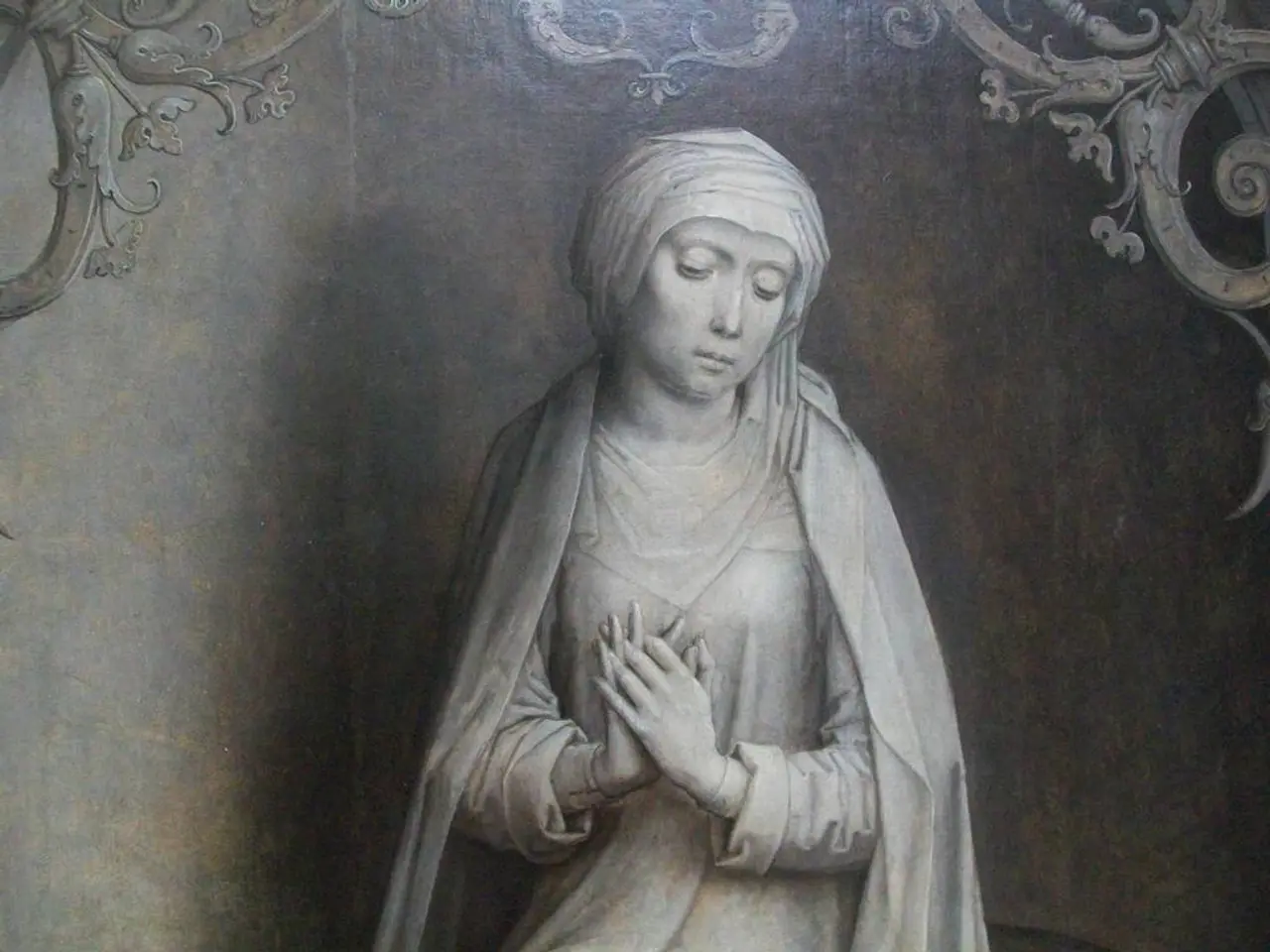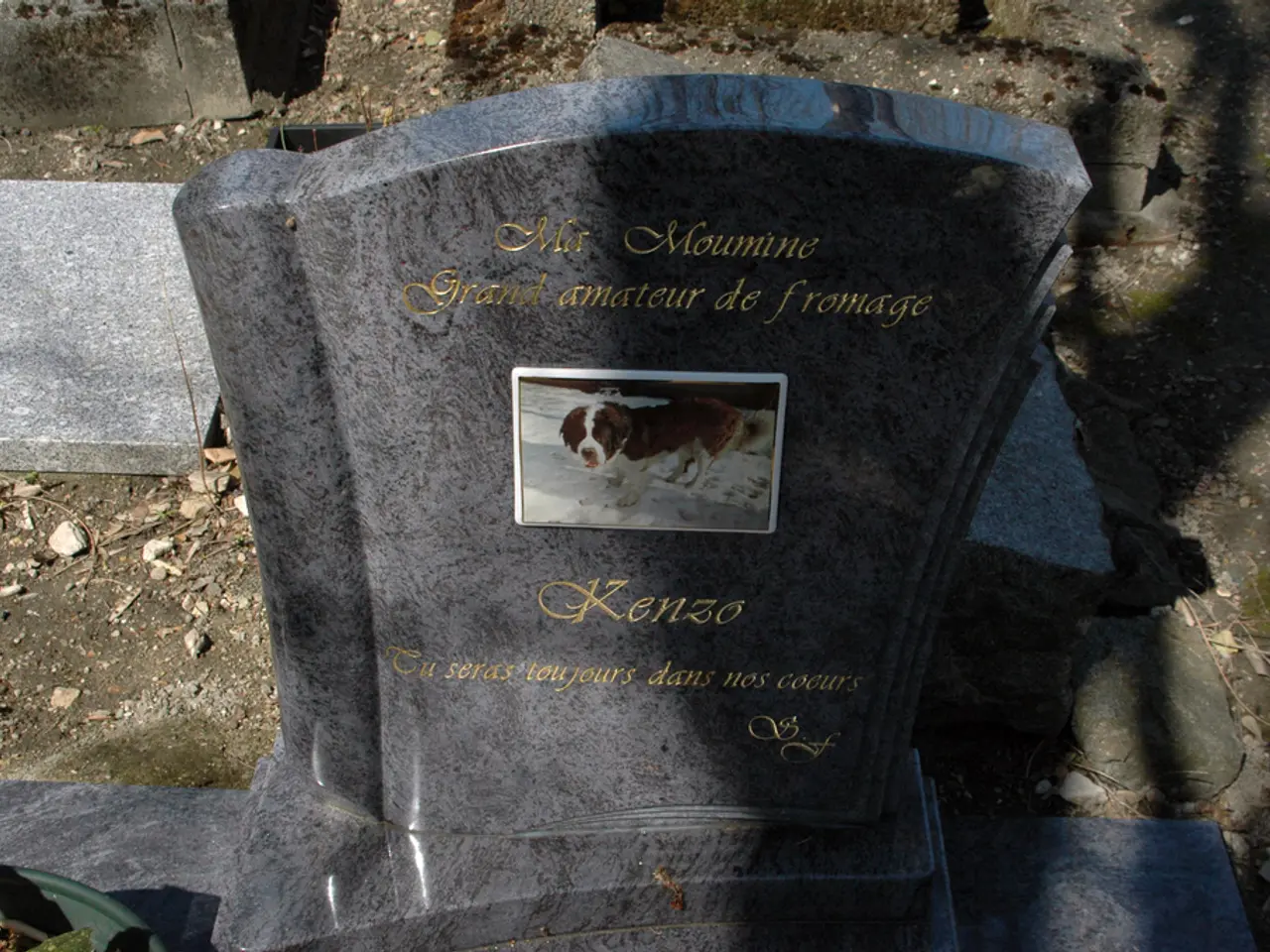Amy Sherald withdraws Smithsonian exhibition due to censorship disputes
In a bold move that highlights the intersection of art and politics, painter Amy Sherald has cancelled her upcoming solo exhibition, "American Sublime," at the Smithsonian's National Portrait Gallery. The exhibition, scheduled to open in September, was set to showcase some 50 works by Sherald, making it one of the largest and most comprehensive presentations of her work yet [1].
At the heart of the controversy is Sherald's painting, "Trans Forming Liberty" (2024), which depicts a transgender woman posing as the Statue of Liberty. Internal concerns were raised about the inclusion of this work, with discussions about removing it from the exhibition taking place [2].
Sherald objected to the proposed removal, believing that it was a result of institutional fear driven by a political climate hostile to trans lives. She described the situation as a "culture of censorship" particularly targeting vulnerable communities like transgender people [1].
The Smithsonian considered adding a contextualizing video alongside "Trans Forming Liberty" rather than removing it, but Sherald declined this compromise [4]. She stated in a letter to Smithsonian Secretary Lonnie G. Bunch III that she had entered into the collaboration expecting a commitment to presenting work that reflects the full, complex truth of American life. However, pressure related to the portrayal of trans identities—seen as politically sensitive amid broader political hostility—made it clear that conditions would not support the exhibition as conceived [1].
This cancellation reflects both Sherald’s refusal to compromise artistic integrity under institutional pressure and the role of political hostility towards trans lives affecting the Smithsonian’s curatorial decisions [1][2][3][4].
It is important to note that the Smithsonian, while receiving about two-thirds of its $1 billion annual budget from the federal government, is not a federal entity. It is overseen by a Board of Regents [5]. However, recent political developments have put the institution under scrutiny. In March, a new executive order instructed the Smithsonian's Board of Regents to eliminate "improper, divisive or anti-American ideology" within its museums [3].
Sherald became a household name in 2018 thanks to her portrait of Michelle Obama, and her work has been celebrated for its powerful depictions of Black figures in American history. The cancellation of "American Sublime" is a significant loss for the Smithsonian and its visitors, and it raises important questions about the role of politics in shaping the presentation of art, particularly when it comes to sensitive and marginalised subjects [1].
The Smithsonian Institution's exhibitions are currently under review by the White House, adding another layer of uncertainty to the future of art at the institution [6]. As the debate continues, it is clear that the line between art and politics is increasingly blurred, and artists like Amy Sherald are at the forefront of this struggle for artistic freedom and representation.
[1] The Washington Post, "Amy Sherald cancels Smithsonian exhibition over censorship concerns," 2023 [2] The New York Times, "Amy Sherald's 'American Sublime' Canceled at Smithsonian," 2023 [3] The Hill, "White House orders Smithsonian to eliminate 'improper, divisive or anti-American ideology'," 2023 [4] Artnet News, "Amy Sherald Stands Up for Trans Rights in Canceled Smithsonian Exhibition," 2023 [5] Smithsonian, "About the Smithsonian," 2023 [6] CNN, "Smithsonian Institution exhibitions under review by White House," 2023
- The cancellation of Amy Sherald's exhibition, "American Sublime," at the Smithsonian's National Portrait Gallery, highlights the intersection of art and politics, as it was called off due to disputes over Sherald's contemporary painting, "Trans Forming Liberty."
- The painting, depicting a transgender woman as the Statue of Liberty, was at the center of the controversy, with some raising concerns about its inclusion, fearing it to be politically sensitive.
- Rather than compromising, artist Amy Sherald objected to the proposed removal, labeling the situation as a "culture of censorship" targeting vulnerable communities like transgender people.
- Museum curators attempted to find a compromise by adding a contextualizing video, but Sherald declined, citing a commitment to presenting work reflecting the full, complex truth of American life.
- This incident signifies Sherald's stand for artistic integrity and raises questions about the impact of political hostility on the presentation of art, particularly in relation to marginalized subjects, in modern museums and galleries.






